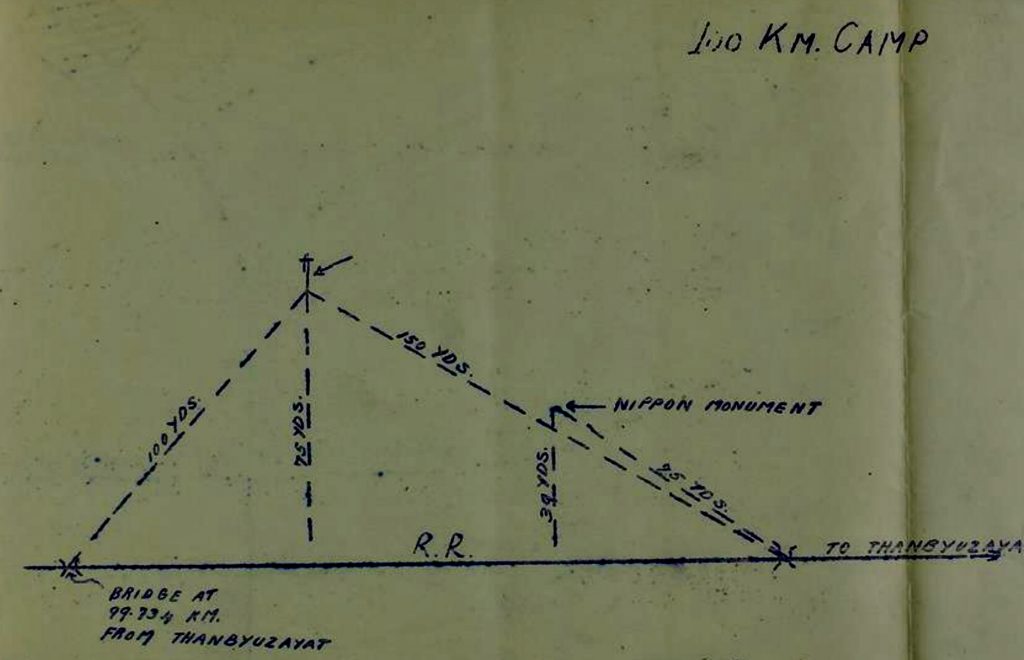Anganan, 100km - Burma
ANGANANG 100 KM CAMP, BURMA – Robertson Force – arrived 29 May
The Railway, which was 421 kms long of single track and 1m gauge, was constructed in a little over 12 months.
The following Affidavit prepared by Ted Cosson in January 1948. He and his wife were managing and living at the Railway Refreshment Rooms, Chidlow.
In particular Ted points out the spitefulness and brutality exhibited towards the POWs on a daily basis by Korean guard ‘Snake Eyes’, who was in charge of the work parties. ‘Snake Eyes’ in turn encouraged the other Korean guards to participate.
About 20 POWs from this camp were detached to 83 km Camp but still remained part of the parent group. From 27 Dec to 29 Dec 1943 the first of the sick from Robertson Force Java 5a Party were evacuated south by train to Kanchanaburi, Thailand. We know that Cosson was amongst the sick sent to Kanchanaburi.



The Camp had a stream nearby and POWs relied upon a well.
The camp had never been properly built was previously occupied by native workers and was filthy. The POWs were crammed into the huts with little space.
The POWs from Robertson Force were at 100 km Camp during the height of ‘Speedo’ and during the wet season for a period of 12 months. These factors combined with the brutality of the Korean guards made for a very ‘dark’ time for the men. The work was hard and consisted of building cuttings and embankments, clearing the land.
The Japanese had a quarry for basting out bluestone rocks for ballast. The POWs used the method of ‘hammer and tap’ with a star drill and an 8lb hammer with the men taking turns.
By this time the men were without shoes – those who arrived with footwear found their shoes disintegrated with the climate. The POWs mostly worked barefoot on sharp rocks which easily cut their feet. They dreaded these cuts becoming tropical ulcers.
It was very cold at nights.
Some POWs took the risk of going out through the fence at night to trade with the local Thais. If the men were caught the consequences terrible. The POWS mainly sought sugar, salt and bananas. The men were continually hungry and desperate.
100km only had a few cholera deaths, their illnesses included tropical illnesses such as dysentery, malaria, beri beri and the ulcers just to name some.
These men and those at other railway camps would never completely forget these years with the filth, slime, mud, starvation, fleas, lice.
Please read further about Robertson Force


Above: We acknowledge the above is from Mansell website. We thank them.
